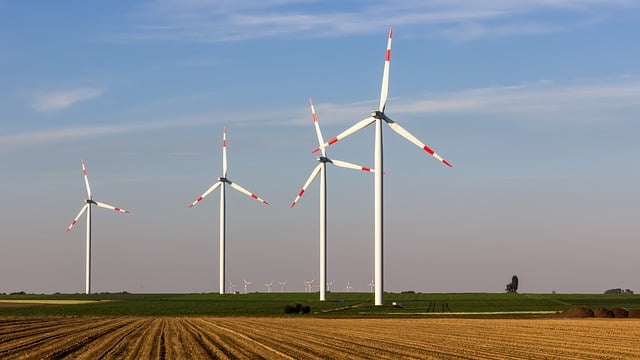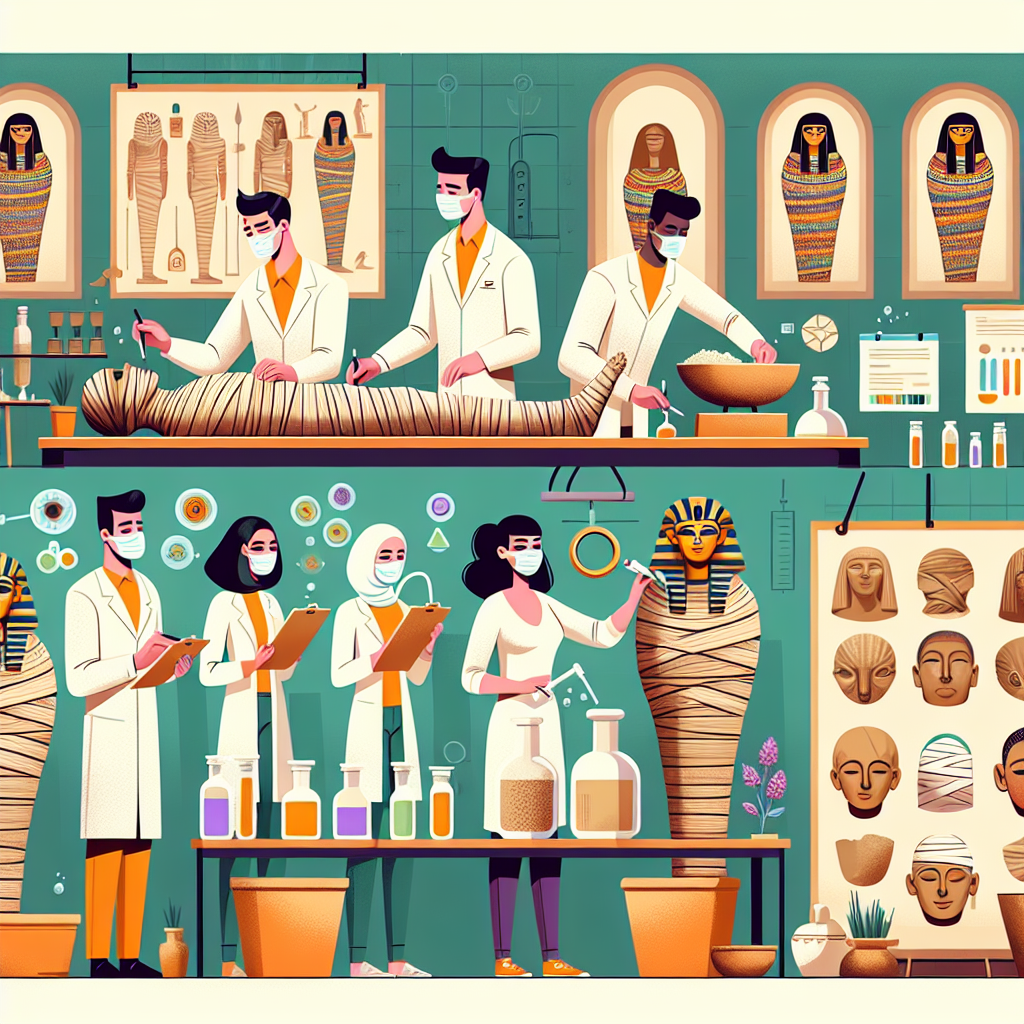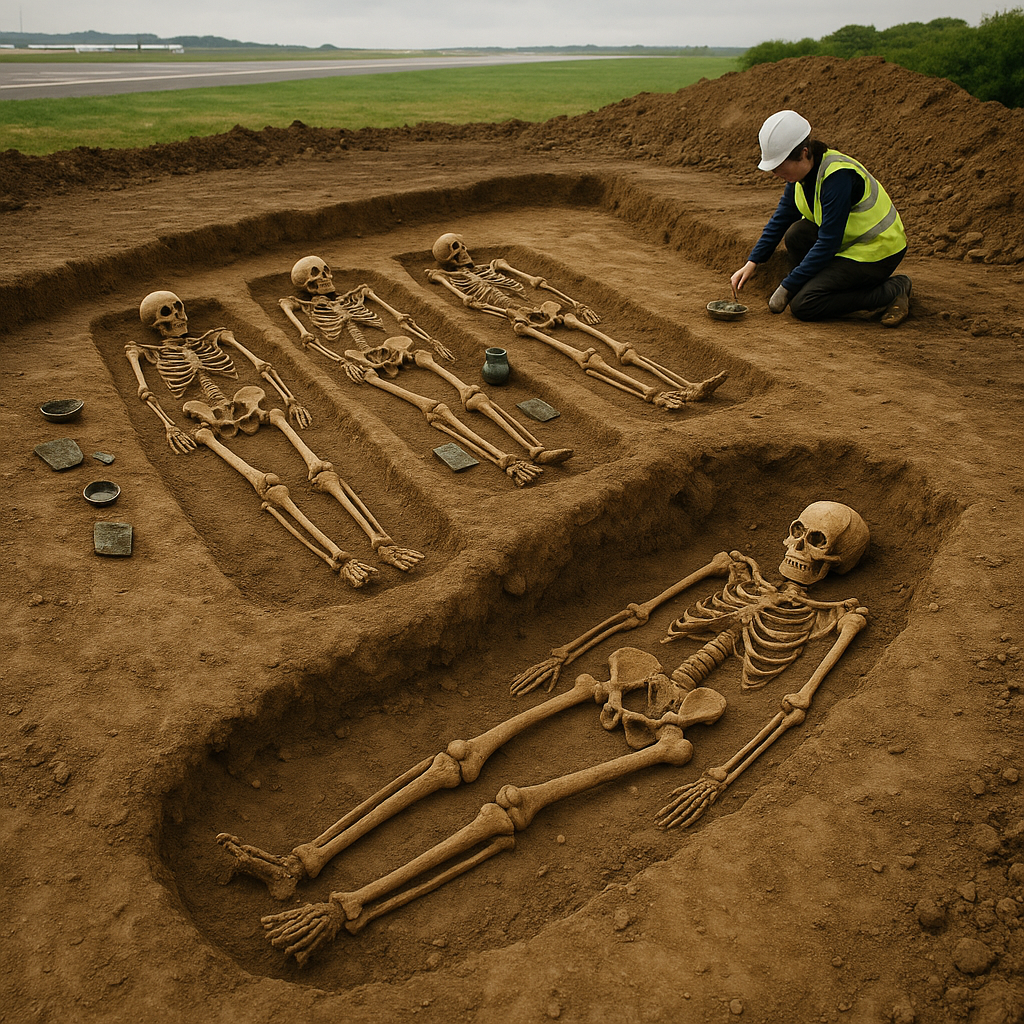A new science study says that the Gulf Stream system, which controls the Atlantic Ocean’s currents and the weather in western Europe, could stop working as soon as 2025. If this system, called the Atlantic Meridional Overturning Circulation (Amoc), stops, it could make temperatures lower and cause big changes in the climate. But, some top scientists don’t agree with the study. They say it’s not sure that the system will stop this century. The Intergovernmental Panel on Climate Change thinks that Amoc won’t stop as fast as the study says.
The person who wrote the study, Prof Peter Ditlevsen, knows that other scientists have been worried about Amoc stopping for a long time. Amoc is a group of currents that move warm water to the north, but as the world gets hotter, fresh water from melting ice is going into the system. If Amoc stops, it could make temperatures in Europe drop by 10 or 15 degrees, make sea levels rise in the eastern US, and change rain patterns that are important for farming. The study thinks that Amoc could stop between 2025 and 2095, depending on how much greenhouse gas we put out.
But, scientists don’t all agree with the study. They say there isn’t enough proof to say that Amoc is getting weaker. They think that Amoc might stop at some point, but they also say that the climate system is very complicated and we can’t be sure. Even though we should be careful about predictions of Amoc stopping, scientists still think it’s important to think about big changes in the North Atlantic climate system.
Original news source: Will the Gulf Stream really collapse by 2025? (BBC)
Listen
Slow
Normal
Fast
Group or Classroom Activities
Warm-up Activities:
– News Summary
Instructions:
1. Divide the class into pairs or small groups.
2. Give each group a copy of the article.
3. Instruct the groups to read the article together and summarize the main points in their own words.
4. After a few minutes, have each group share their summary with the class.
5. As a class, discuss any differences or similarities between the summaries and clarify any misunderstandings.
– Opinion Poll
Instructions:
1. Write the following question on the board: “Do you think the Gulf Stream system will stop working by 2025?”
2. Have the students raise their hands to indicate their opinion (e.g. yes, no, unsure).
3. Explain that they will have a few minutes to discuss their reasons for their opinion with a partner.
4. After the discussion, conduct a class poll by asking each student to share their opinion and briefly explain their reasoning.
5. Encourage respectful discussion and allow students to challenge each other’s opinions in a constructive manner.
– Vocabulary Pictionary
Instructions:
1. Divide the class into teams of 4-5 students.
2. Give each team a set of vocabulary words related to the article (e.g. Gulf Stream, currents, climate, greenhouse gas).
3. Instruct the teams to take turns selecting a word and drawing it on the board without using any letters or numbers.
4. The other teams must try to guess the word based on the drawing.
5. Each team gets a point for correctly guessing a word and the team with the most points at the end wins.
– Speed Summarizing
Instructions:
1. Divide the class into pairs.
2. Give each pair a copy of the article.
3. Explain that they will have one minute to read the article silently.
4. After one minute, one student from each pair will have 30 seconds to summarize the main points of the article to their partner.
5. After 30 seconds, the roles will switch and the other student will summarize.
6. Encourage students to speak quickly and concisely during the activity.
7. After the activity, ask a few pairs to share their summaries with the class.
– Pros and Cons
Instructions:
1. Divide the class into two groups.
2. Assign one group to argue the pros of the Gulf Stream system stopping, and the other group to argue the cons.
3. Give each group a few minutes to brainstorm their arguments.
4. Once they are ready, have each group take turns presenting their arguments to the class.
5. Encourage the students to use evidence from the article to support their points.
6. After both groups have presented, facilitate a class discussion to explore the different perspectives and discuss the potential consequences of the Gulf Stream system stopping.
Comprehension Questions:
1. What does the Gulf Stream system control?
2. What could happen if the Atlantic Meridional Overturning Circulation (Amoc) stops working?
3. Do all scientists agree with the study about Amoc stopping?
4. What happens to the warm water in the Gulf Stream system as the world gets hotter?
5. What are some possible effects if Amoc stops working?
6. Why do some scientists disagree with the study?
7. Why do scientists still think it’s important to think about big changes in the North Atlantic climate system?
Go to answers ⇩
Listen and Fill in the Gaps:
A new science study (1)______ that the Gulf Stream system, which controls the Atlantic Ocean’s currents and the weather in western Europe, could (2)______ working as soon as 2025. If this system, called the Atlantic Meridional Overturning Circulation (Amoc), stops, it could make temperatures lower and cause big changes in the (3)______. But, some top scientists don’t agree with the study. They say it’s not sure that the (4)______ will stop this century. The Intergovernmental Panel on Climate Change thinks that (5)______ won’t stop as fast as the study says.
The person who wrote the study, Prof Peter Ditlevsen, knows that other scientists have been worried about Amoc stopping for a long (6)______. Amoc is a group of currents that move warm water to the north, but as the world gets hotter, fresh water from melting ice is going into the system. If Amoc stops, it could make temperatures in (7)______ drop by 10 or 15 degrees, make sea levels rise in the eastern US, and (8)______ rain patterns that are important for farming. The study thinks that Amoc could stop between 2025 and 2095, depending on how much greenhouse gas we put out.
But, (9)______ don’t all agree with the study. They say there isn’t enough (10)______ to say that Amoc is (11)______ weaker. They think that Amoc might stop at some point, but they also say that the climate system is very complicated and we can’t be sure. Even though we should be careful about (12)______ of Amoc stopping, scientists still think it’s important to think about big changes in the North Atlantic climate system.
Go to answers ⇩
Discussion Questions:
Students can ask a partner these questions, or discuss them as a group.
1. What is the Gulf Stream system and what does it control?
2. How would you feel if the Gulf Stream system stopped working?
3. Do you think the study is correct in saying that the Gulf Stream system could stop as soon as 2025? Why or why not?
4. What are some possible changes in the climate if the Gulf Stream system stops?
5. Do you think the Intergovernmental Panel on Climate Change is right in saying that the Gulf Stream system won’t stop as fast as the study says? Why or why not?
6. What is Amoc and how does it work?
7. How would you feel if temperatures in Europe dropped by 10 or 15 degrees?
8. Do you think the climate system is complicated? Why or why not?
9. What do scientists say about the proof that Amoc is getting weaker?
10. Do you think it’s important to think about big changes in the North Atlantic climate system? Why or why not?
11. How do you think the world getting hotter affects Amoc?
12. What do you think we can do to prevent the Gulf Stream system from stopping?
Individual Activities
Vocabulary Meanings:
Match each word to its meaning.
Words:
1. study
2. system
3. temperatures
4. changes
5. scientists
6. Amoc
7. proof
8. predictions
Meanings:
(a) How hot or cold something is
(b) People who study and learn about things
(c) Evidence that shows something is true
(d) A group of things that work together
(e) Guesses about what might happen in the future
(f) When something becomes different
(g) The name of the current system in the Atlantic Ocean
(h) A research project to learn new things
Go to answers ⇩
Multiple Choice Questions:
1. What is the name of the system that controls the Atlantic Ocean’s currents and weather in western Europe?
(a) Atlantic Meridional Overturning Circulation (Amoc)
(b) Gulf Stream system
(c) Intergovernmental Panel on Climate Change
(d) Prof Peter Ditlevsen
2. According to the study, what could happen if the Amoc system stops working?
(a) Higher temperatures and no changes in the climate
(b) No changes in temperatures and no changes in the climate
(c) Lower temperatures and big changes in the climate
(d) Higher temperatures and big changes in the climate
3. What is the main reason why some scientists disagree with the study?
(a) They think Amoc will stop this century
(b) They think there isn’t enough proof to say that Amoc is getting weaker
(c) They think the climate system is very complicated
(d) They think the study is not important
4. What happens to the warm water in the Amoc system as the world gets hotter?
(a) It stays the same temperature
(b) It gets colder
(c) It evaporates
(d) Fresh water from melting ice goes into the system
5. What could happen if Amoc stops working?
(a) Temperatures in Europe could drop by 10 or 15 degrees
(b) Temperatures in Europe could rise by 10 or 15 degrees
(c) Temperatures in Europe could stay the same
(d) Temperatures in Europe could drop by 5 degrees
6. According to the study, when could Amoc potentially stop?
(a) Between 2025 and 2050
(b) Between 2025 and 2095
(c) Between 2095 and 2100
(d) Between 2050 and 2095
7. Why do scientists still think it’s important to think about big changes in the North Atlantic climate system?
(a) Because the study is not important
(b) Because the climate system is simple
(c) Because the study is accurate
(d) Because the climate system is very complicated
8. What could happen if Amoc stops working in the eastern US?
(a) Sea levels could drop
(b) Sea levels could stay the same
(c) Sea levels could rise
(d) Sea levels could rise in Europe
Go to answers ⇩
True or False Questions:
1. If the Gulf Stream system stops, it could make temperatures higher and cause minimal changes in the climate.
2. If the Gulf Stream system stops, it could cause temperatures in Europe to drop by 10 or 15 degrees, raise sea levels in the eastern US, and change important rain patterns for farming.
3. The Intergovernmental Panel on Climate Change believes that the Gulf Stream system will stop as fast as the study predicts.
4. The Gulf Stream system is a group of currents that bring cold water to the north, but as the world gets hotter, melting ice is adding saltwater to the system.
5. Some top scientists disagree with the study and think that the system won’t stop as quickly as the study suggests.
6. A new study suggests that the Gulf Stream system, which controls the Atlantic Ocean’s currents and weather in western Europe, might stop working by 2025.
7. The person who wrote the study, Prof Peter Ditlevsen, knows that other scientists have been concerned about the Gulf Stream system stopping for a long time.
8. Scientists all agree with the study and say there is enough evidence to prove that the Gulf Stream system is getting weaker.
Go to answers ⇩
Write a Summary:
Write a summary of this news article in two sentences.
Check your writing now with the best free AI for English writing!
Writing Questions:
Answer the following questions. Write as much as you can for each answer.
Check your answers with our free English writing assistant!
1. What is the Gulf Stream system and what does it control?
2. What could happen if the Gulf Stream system stops working?
3. Why are some scientists not sure if the Gulf Stream system will stop this century?
4. How could the melting ice affect the Gulf Stream system?
5. Why do scientists think it’s important to think about big changes in the North Atlantic climate system?
Answers
Comprehension Question Answers:
1. What does the Gulf Stream system control?
The Gulf Stream system controls the Atlantic Ocean’s currents and the weather in western Europe.
2. What could happen if the Atlantic Meridional Overturning Circulation (Amoc) stops working?
If Amoc stops working, it could make temperatures lower and cause big changes in the climate.
3. Do all scientists agree with the study about Amoc stopping?
No, not all scientists agree with the study. Some scientists think that Amoc won’t stop as fast as the study says.
4. What happens to the warm water in the Gulf Stream system as the world gets hotter?
As the world gets hotter, fresh water from melting ice goes into the Gulf Stream system.
5. What are some possible effects if Amoc stops working?
Some possible effects if Amoc stops working are lower temperatures in Europe, rising sea levels in the eastern US, and changes in rain patterns important for farming.
6. Why do some scientists disagree with the study?
Some scientists disagree with the study because they think there isn’t enough proof to say that Amoc is getting weaker. They also think that the climate system is very complicated and we can’t be sure.
7. Why do scientists still think it’s important to think about big changes in the North Atlantic climate system?
Scientists still think it’s important to think about big changes in the North Atlantic climate system because even though there may be disagreements, it’s still important to consider the potential impacts and prepare for any possible changes.
Go back to questions ⇧
Listen and Fill in the Gaps Answers:
(1) says
(2) stop
(3) climate
(4) system
(5) Amoc
(6) time
(7) Europe
(8) change
(9) scientists
(10) proof
(11) getting
(12) predictions
Go back to questions ⇧
Vocabulary Meanings Answers:
1. study
Answer: (h) A research project to learn new things
2. system
Answer: (d) A group of things that work together
3. temperatures
Answer: (a) How hot or cold something is
4. changes
Answer: (f) When something becomes different
5. scientists
Answer: (b) People who study and learn about things
6. Amoc
Answer: (g) The name of the current system in the Atlantic Ocean
7. proof
Answer: (c) Evidence that shows something is true
8. predictions
Answer: (e) Guesses about what might happen in the future
Go back to questions ⇧
Multiple Choice Answers:
1. What is the name of the system that controls the Atlantic Ocean’s currents and weather in western Europe?
Answer: (a) Atlantic Meridional Overturning Circulation (Amoc)
2. According to the study, what could happen if the Amoc system stops working?
Answer: (c) Lower temperatures and big changes in the climate
3. What is the main reason why some scientists disagree with the study?
Answer: (b) They think there isn’t enough proof to say that Amoc is getting weaker
4. What happens to the warm water in the Amoc system as the world gets hotter?
Answer: (d) Fresh water from melting ice goes into the system
5. What could happen if Amoc stops working?
Answer: (a) Temperatures in Europe could drop by 10 or 15 degrees
6. According to the study, when could Amoc potentially stop?
Answer: (b) Between 2025 and 2095
7. Why do scientists still think it’s important to think about big changes in the North Atlantic climate system?
Answer: (d) Because the climate system is very complicated
8. What could happen if Amoc stops working in the eastern US?
Answer: (c) Sea levels could rise
Go back to questions ⇧
True or False Answers:
1. If the Gulf Stream system stops, it could make temperatures higher and cause minimal changes in the climate. (Answer: False)
2. If the Gulf Stream system stops, it could cause temperatures in Europe to drop by 10 or 15 degrees, raise sea levels in the eastern US, and change important rain patterns for farming. (Answer: True)
3. The Intergovernmental Panel on Climate Change believes that the Gulf Stream system will stop as fast as the study predicts. (Answer: False)
4. The Gulf Stream system is a group of currents that bring cold water to the north, but as the world gets hotter, melting ice is adding saltwater to the system. (Answer: False)
5. Some top scientists disagree with the study and think that the system won’t stop as quickly as the study suggests. (Answer: True)
6. A new study suggests that the Gulf Stream system, which controls the Atlantic Ocean’s currents and weather in western Europe, might stop working by 2025. (Answer: True)
7. The person who wrote the study, Prof Peter Ditlevsen, knows that other scientists have been concerned about the Gulf Stream system stopping for a long time. (Answer: True)
8. Scientists all agree with the study and say there is enough evidence to prove that the Gulf Stream system is getting weaker. (Answer: False)
Go back to questions ⇧















